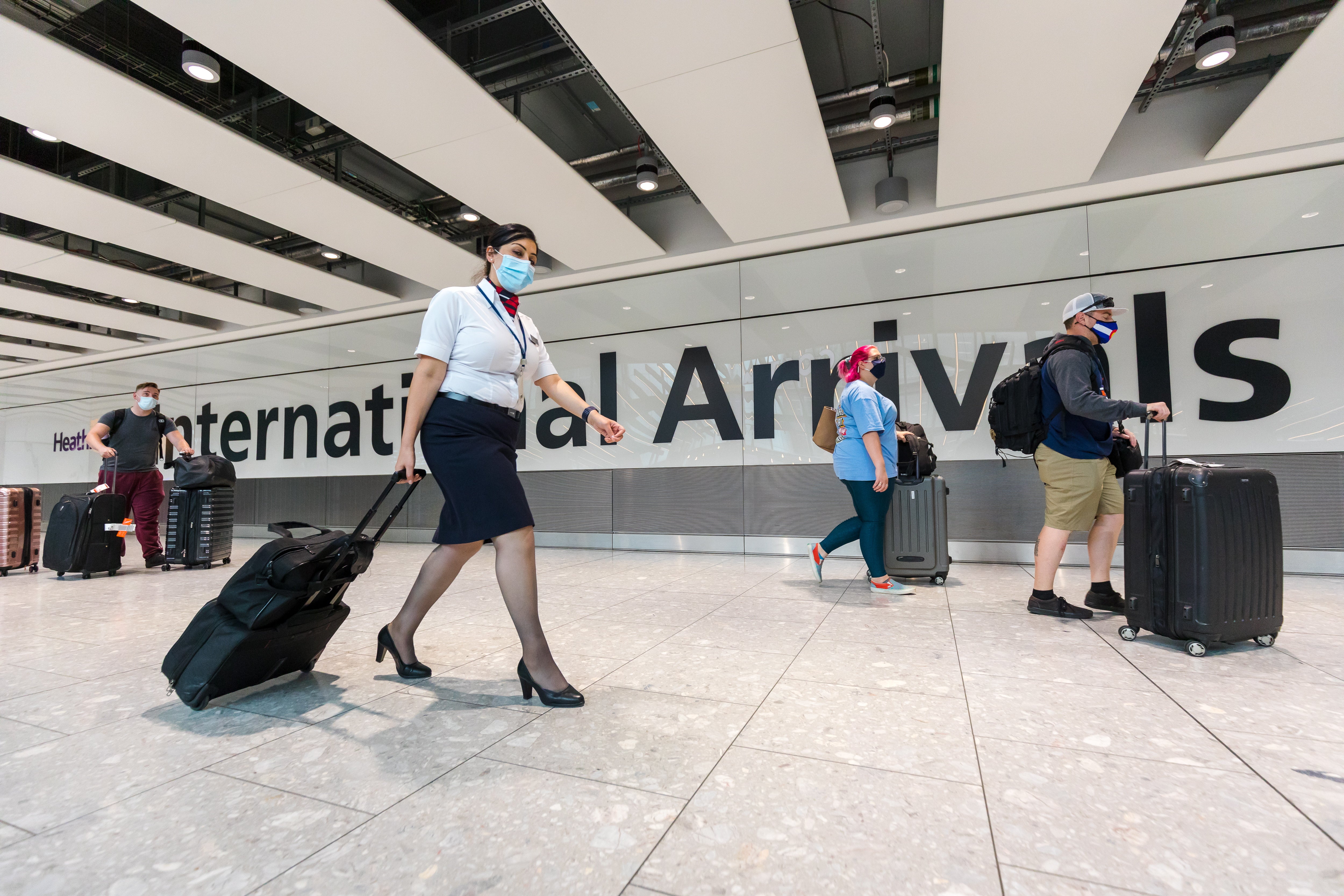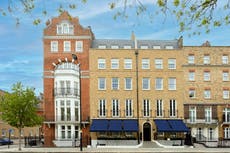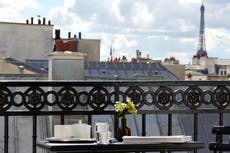Boris Johnson defends tests for travellers amid growing unease over cost
PCR tests on return branded a ‘£100 tax on flights’

Boris Johnson has defended the use of costly PCR tests on Britons returning home from holidays as many of his own Conservative MPs call for them to be scrapped or switched for cheaper lateral flow tests.
Speaking after the relaxation of restrictions on travel from destinations like France, Germany and Dubai under the government’s traffic light system, the prime minister admitted that holidays remain “trickier” than normal this summer and appealed for “patience” from the public.
But he faced a wave of demands for action on the PCR tests, which have been branded “a £100 tax on flights” by the aviation industry and continue to make holidays unaffordable for many families with children.
The chair of the House of Commons Transport Committee, Huw Merriman, said passengers were being “ripped off” for the tests to the tune of more than £10m a week.
And he said that claims they were needed to allow for sequencing of variants coming into the country were undermined by NHS Test and Trace figures which show that, of 500,000 taken over a three-week period, just 6,977 were positive and only 354 were sequenced.
The committee called on the government, in a report in April, to “facilitate an affordable testing regime that supports public health and safe travel for everyone by maximising the role of antigen tests and ensuring the provision of affordable PCR tests where required”.
Senior Tory backbencher Sir Roger Gale told The Independent he believed there was a groundswell of opposition to the tests among MPs who fear they are holding back the recovery of aviation.
“We are woefully lagging behind France and Germany in the recovery of our aviation industry,” said the North Thanet MP. “We have got to get Britain flying again and to do that we have to address the issue of tests.
“The Americans require a PCR test before departure, but not on arrival, for fully-vaccinated people. That would be sufficient to protect the country from the importation of the virus, and it would be a lot cheaper for travellers. It is the requirement for a test within two days of return that pushes the price up, because PCR tests are far more expensive in the UK than elsewhere in Europe. It’s become a licence to print money for the private firms providing the tests.”
Prices currently quoted by suppliers listed by the Foreign Office range from around £20 to an eye-watering £399 for PCR tests, but many of the cheaper offers require travel to a lab for in-person swabs and some have hidden charges. For postal tests the cost can easily mount up to £100 a head.
Travellers from green list countries and vaccinated people arriving from amber-list countries must take a PCR test within two days of arrival, while non-vaccinated arrivals coming from amber-list areas must taken a second after eight days. But some destinations also require a test before flying out for a holiday, and the government is urging all UK nationals returning from Spain to take another before departing for the UK, potentially meaning a total of four for people without full vaccination.
The chief executive of tourism trade body UKInbound, Joss Croft, said: “The cost of testing, which can easily run into hundreds of pounds for a family, continues to be an unnecessary and significant barrier to travel.”
And private test providers Project Screen by Prenetics called on chancellor Rishi Sunak to waive VAT on the tests, a move which they said could save a family of four holidaying in Spain as much as £166 from a total cost of £1,328 - enough to pay for their flights.
But Mr Johnson insisted that current levels of testing were “sensible” and urged the public to be patient.
“We understand how important people’s holidays are and I’ve always said that we wanted people to have holidays this summer, though I always stressed it was going to be not the same as any other summer, unfortunately, because of the pandemic,” said the prime minister during a visit to Scotland.
Urging the public to follow guidance on testing, Mr Johnson added: “We want people to get away if they possibly can. We’re just saying that, obviously, this year is going to be a bit trickier than usual.
“We just ask for a bit of a bit of patience. But we’ve got to balance the two objectives. We want people to be able to travel, we want the travel industry to get going again, we want to see tourists coming back to our country – a very, very important part of our economy – but you’ve got to balance that against the need to protect ourselves against the pandemic.”
Mr Johnson’s comments came as pressure increased for further simplification of the traffic light scheme of travel restrictions, with the British Chambers of Commerce (BCC) calling for the abolition of the “amber list” covering most popular tourist destinations in Europe in favour of a straightforward red-or-green division between countries which are deemed safe to visit and those which are not.
BCC director of policy James Martin said: “Businesses need the confidence and clarity provided by a system which places countries in either green or red categories, removing the ambiguity of the amber designation, which now relies on very different rules for the vaccinated and non-vaccinated.
“The government should also step-up efforts to drive down the cost of tests required by the system; limited progress has been made in this area so far and the cost remains a significant barrier to both business and leisure travellers.”
The CBI said that the addition of seven countries to the quarantine-free green list and the removal of France’s “amber-plus” status from 8 August offered “some relief” for hard-pressed travel companies.
But the organisation’s chief policy director Matthew Fell warned that the sector faces “a long road to full recovery” and called for an urgent move to a strategy which allows a more comprehensive resumption of travel in a way which is “safe, simple and certain”.



Join our commenting forum
Join thought-provoking conversations, follow other Independent readers and see their replies
Comments